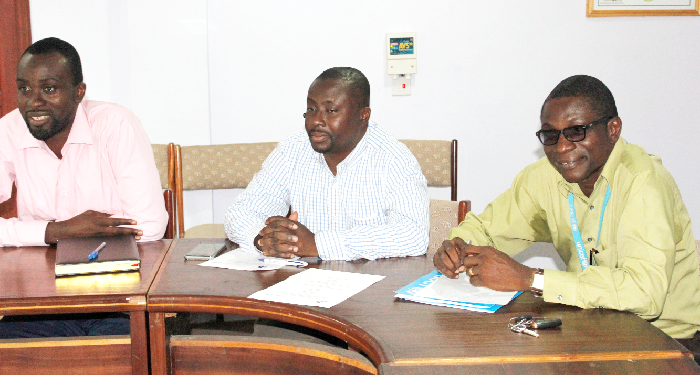
CDD, UNICEF to launch District League Table
The Ghana Centre for Democratic Development (CDD), in partnership with the United Nations Children’s Fund (UNICEF), has engaged development practitioners on the District League Table (DLT) ahead of the launch of the 2016 rankings.
Advertisement
The DLT is a ranking tool of the level of development of each district and was first launched in 2014 by the two partners.
An annual ranking, the DLT, when it was first launched in 2014, saw the Tano South District, with a score of 76, coming tops.
In 2015 the Tema metropolis come first with a ranking of 76.6.
Ahead of the 2016 rankings launch tomorrow, a meeting was held with journalists on progress of the DLT since it was launched in 2014 and how the rankings could be used as an advocacy tool in support of development outcomes.
Conversation
The Head of Research and Programmes and Deputy Director of the CDD, Dr Franklin Oduro, in his remarks, said a series of meetings had already been held with district assembly officials in all 10 regions of the country, as well as regional coordinating councils on the DLT.
He said it was time to hold similar conversations with the media, who were critical partners in the dissemination of information relating to the DLT.
He said the meeting was to share with journalists what partners had been up to with the DLT since last year’s release and engage on how the tool could be evolved into a versatile advocacy material on development nationwide.
Engagements
An official of UNICEF, Mr Charles Dzradosi, said the DLT had had the blessing of the Ministry of Local Government and Rural Development in the collection of data for the rankings.
He said UNICEF and CDD-Ghana were in dialogue with agencies such as the National Development Planning Commission (NDPC) and the Local Government Service (LGS) to ensure that the tool was complementary to other assessment tools in the sector.
Content
Another official of UNICEF, Mrs Evelyn Baddoo, emphasised the fact that the DLT was “a tool for assessing people’s well-being” and not to name and shame districts.
She said the rankings could offer interesting perspectives on specific sectors in districts, such as education and sanitation, and that could fuel stories by journalists.
“The DLT is not for you to write a one-time story but provides content for several articles to raise awareness,” she said.
Context
Mr Awal Mohammed of CDD-Ghana, in his submissions, urged journalists to go behind the raw rankings and desegregate the data for specific scenarios behind the figures.
He suggested that even when reporting on the rankings, journalists should set it in context to bring up issues that would focus discussion on challenges and their solutions in the districts.
DLTS
Ms Mavis Dome, also of CDD-Ghana, explained some processes leading to the rankings and said the DLT was also a measurement of progress chalked up by the districts over time in specific areas.
Mr Rexford Asiama of the CDD took journalists through previous rankings, and said for the 2016 rankings, the new developments were the adoption of performance measures and also open defecation-free (ODF) criterion in the rankings.
He said the six indicators used in the rankings were the average BECE pass rate, communities in the district certified as open defecation-free, percentage of women with a skilled attendant at delivery, coverage of police officers, the Functional Organisational Assessment Tool (FOAT) performance measurement score and the coverage of water in rural communities in the district.
Writer’s email: [email protected]



